There are some limited exceptions, like self-defense, but generally law prohibits starting wars. Second, we have a body of law that prescribes how wars must unfold. It is most often called international humanitarian law or the laws of war. It proscribes certain conduct on the battlefield. Some violations of international humanitarian law are criminalized, so if an individual violates international humanitarian law in a certain way, they may later be held to account by a criminal court or tribunal. That is regulated in international criminal law, the third body of law. Of course, law is only one factor that shapes how the wars that we witness day to day unfold. Most of the time, war follows imperatives of strategy and of politics. There are also strong affective or emotional dynamics on battlefields. Ideally, ethics or morality also shape how people conduct wars and when wars start. Law is one factor that helps us make sense of the violence we witness in international relations every day.
Law and morality in war
Professor of Global Security
- International law regulates when states can go to war and how wars must be conducted, but enforcement is inconsistent and influenced by politics.
- The Geneva Conventions set out key battlefield principles like distinction, necessity and proportionality, which aim to limit harm to civilians – though violations are common.
- There is a gap between what is legally permitted in war and what is morally justified, as the law treats both sides’ combatants the same, regardless of the justice of their cause.
- The biggest barrier to better compliance with wartime law is not weakness of law but political leaders’ lack of courage, especially when it comes to holding allies accountable.
Three bodies of international law
Three bodies of international law are relevant to how wars must be waged. First, general international law prohibits states from starting wars in most circumstances. This general prohibition on the use of force is enshrined in the Charter of the United Nations.
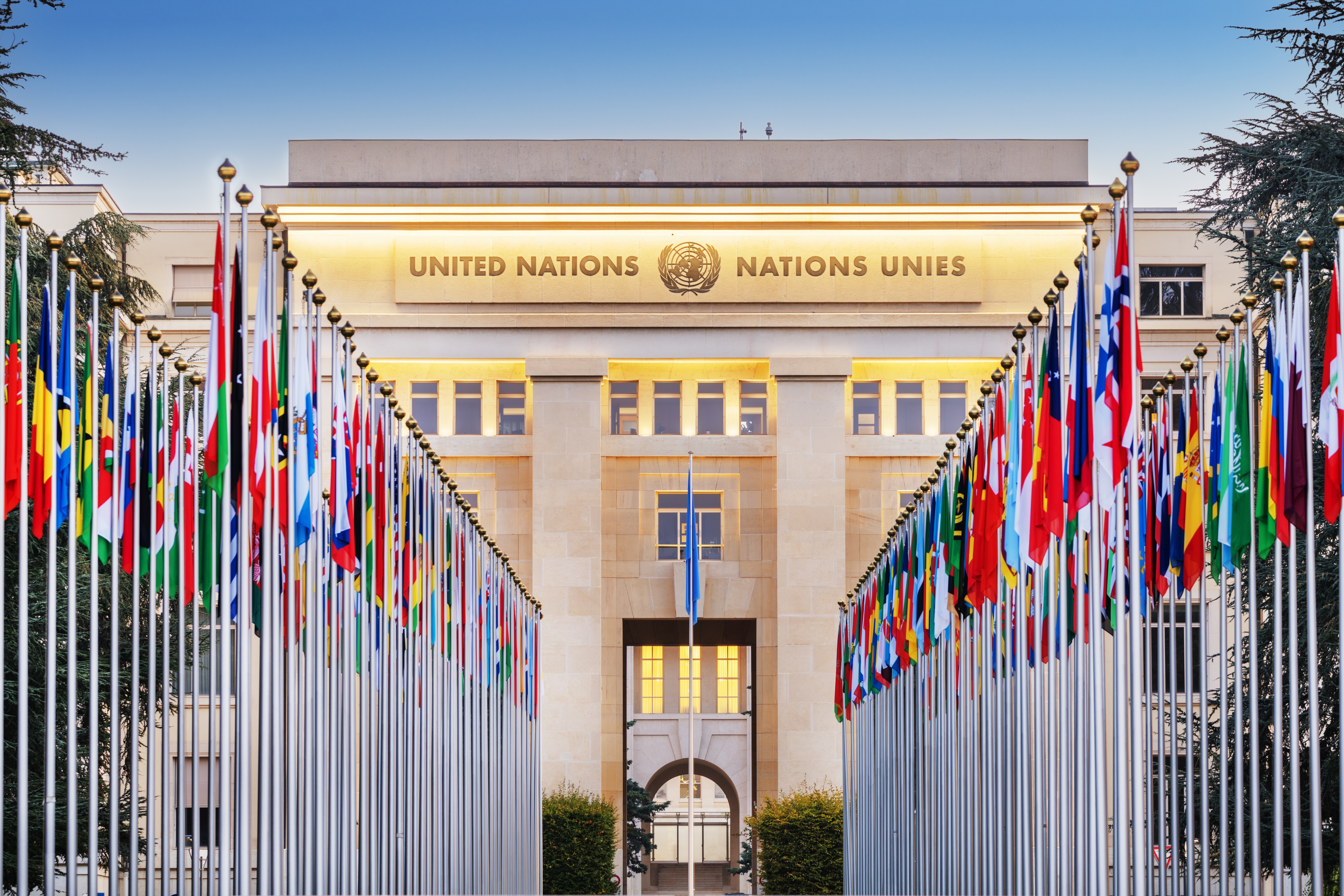
© Sean Pavone via Shutterstock
Enforcing international law
International law is not enforced in the way domestic law is enforced. The blueprint for legal enforcement that most of us have in mind is that if you threaten someone with violence or use violence against somebody, the police would come, a court would then decide whether you broke the law, potentially issue an arrest warrant and the police would execute this arrest warrant and put you in jail. This is not how it works in the international system. We have courts that can adjudicate whether a state broke the law, but these courts do not have jurisdiction over every legal question that arises in international relations. For instance, the International Court of Justice, when it has jurisdiction, can determine that a state violated international law. The Court can order that state to cease the illegal conduct; it can impose a demand of reparations, but there is no international police force that will execute the Court’s orders.
International law is enforced in a “horizontal” system, which means states are supposed to enforce the law vis-à-vis each other, rather than a “vertical” system in which a sovereign with a police force enforces the law vis-à-vis the subjects. Generally, when a state is found to have violated international law, other states are called upon to impose sanctions, cease trade and protest diplomatically. Moreover, there is a rule in international law that states are not allowed to aid or assist another state in violating international law. Of course, that system of “horizontal” enforcement is often disrupted by politics, because states may not have an interest in “enforcing” a particular international law. There is also some vertical enforcement in international law: The UN Security Council is in charge of enforcing the international law that prohibits the use of force. The Security Council can mandate the defensive use of force in response to an aggression.
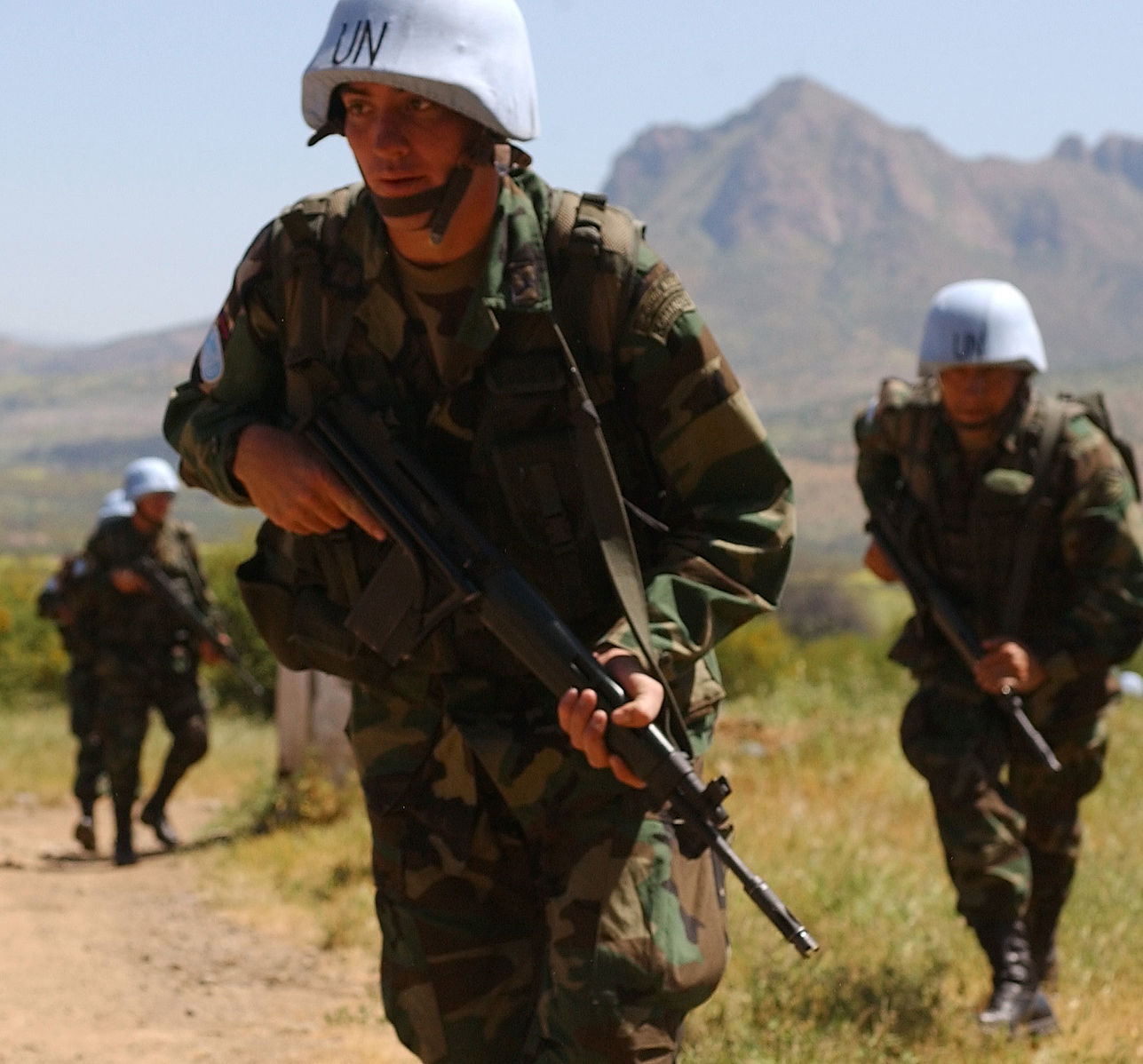
© Senior Airman JoAnn S. Makinano via Wikimedia
Of course, the Security Council is made up of states. They vote in line with their interests, so oftentimes enforcement is disrupted by politics. Whether or not a state that breaks international law actually faces consequences for the breach is often a matter of politics and not only a question of whether we can convincingly demonstrate that they violated international law.
Prohibition on starting wars
One of the greatest achievements of international law was the UN Charter in 1945, articulating a blanket prohibition on the use of force by states in international relations. Historically, war between states was considered a tool of sovereign statecraft. Following a process of gradual delegitimization of war, which culminated in the UN Charter, Article two now demands that states resolve their conflicts peacefully and not use force in their international relations. There is a customary prohibition that echoes the treaty. There are some exceptions to the prohibition on the use of force. Two are particularly important. First, the Security Council can mandate the use of force in response to an aggression. The Security Council can diagnose that there is a threat to the peace, breach of the peace or act of aggression, and then mandate a response that includes the use of force. States that take up that mandate would then be going to war in compliance with international law rather than in contravention of it.
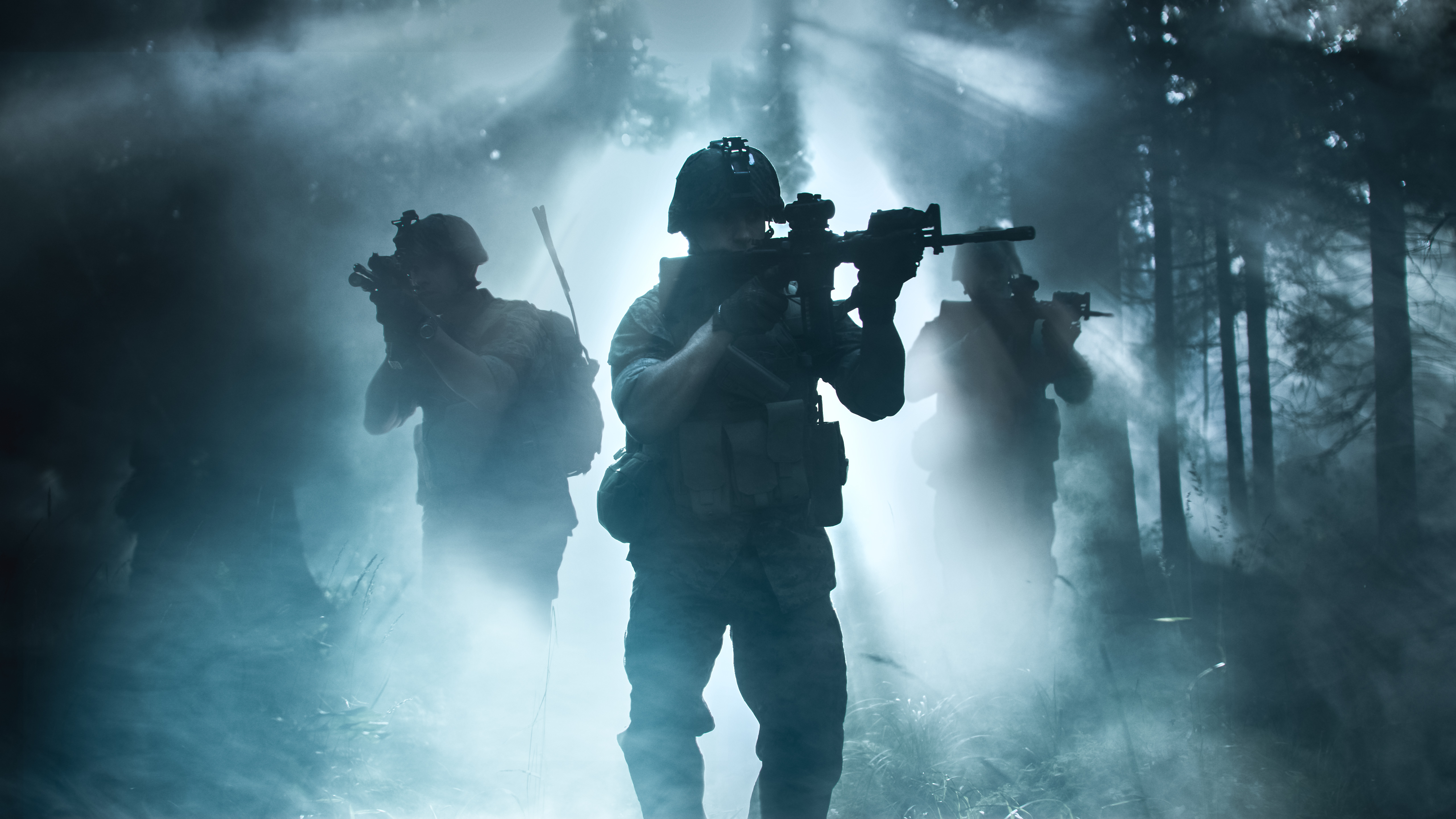
© Gorodenkoff via Shutterstock
For that, the Security Council must vote in favor – none of the permanent members must veto it – and then states must be willing to take up that mandate. The second exception is self-defense. While states must generally not use force in their international relations, when a state is under armed attack by another state, the attacked state can resort to force in self-defense. It has an “inherent right” of self-defense, and not surprisingly, this is a justification that states very frequently invoke, even when it is not entirely plausible that they are acting in self-defence.
Exceptions to the prohibition
In 1990, Iraq invaded its neighboring country Kuwait, and in response, the Security Council authorized that states cooperating with Kuwait could assist in repelling the armed attack by Iraq using “all necessary means”. That is one example of a mandate by the Security Council for the use of force.
Self-defense is often invoked, and it is not always confirmed by the Security Council whether its invocation is appropriate.
Russia first invaded sovereign Ukrainian territory in contravention of the prohibition on the use of force in 2014 when it seized the peninsula of Crimea. In 2022, it launched a full-scale invasion of Ukraine.
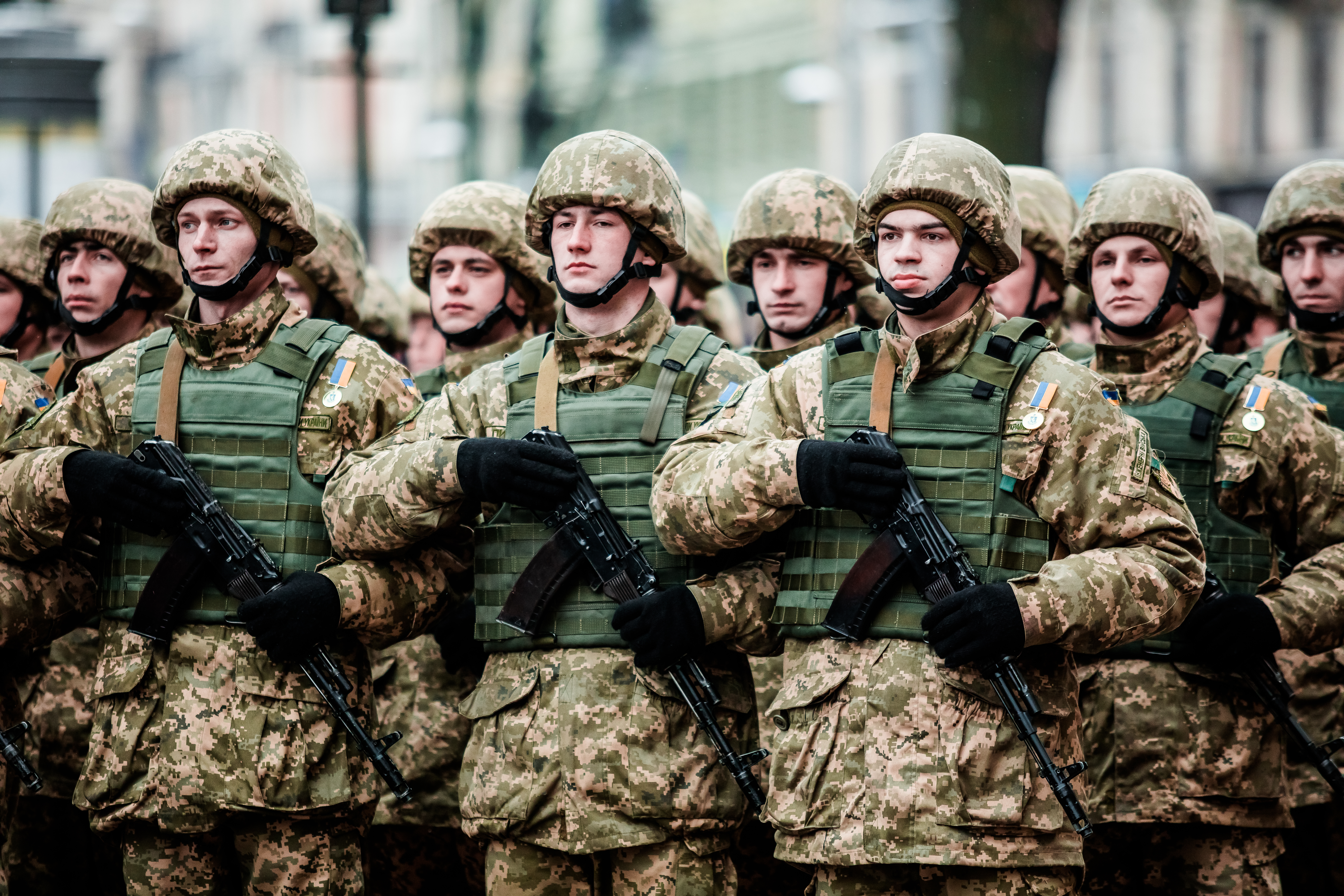
© Ruslan Lytvyn via Shutterstock
This is a classic case of one state launching an armed attack against another state, and Ukraine's response to that armed attack is covered by Ukraine's inherent right of self-defense.
The Geneva Conventions
When it comes to how states or armed groups must behave on the battlefield, we look to a series of treaties called the Geneva Conventions. They contain many provisions that are also customary law. The Geneva Conventions and Protocols are the most important treaties regulating how wars must unfold, how parties to a war must use force on the battlefield and how they must treat detainees. They also regulate humanitarian operations and occupation. For the conduct of hostilities – how belligerent parties at war use kinetic force against each other – three principles are particularly relevant, called the principles of necessity, distinction and proportionality.
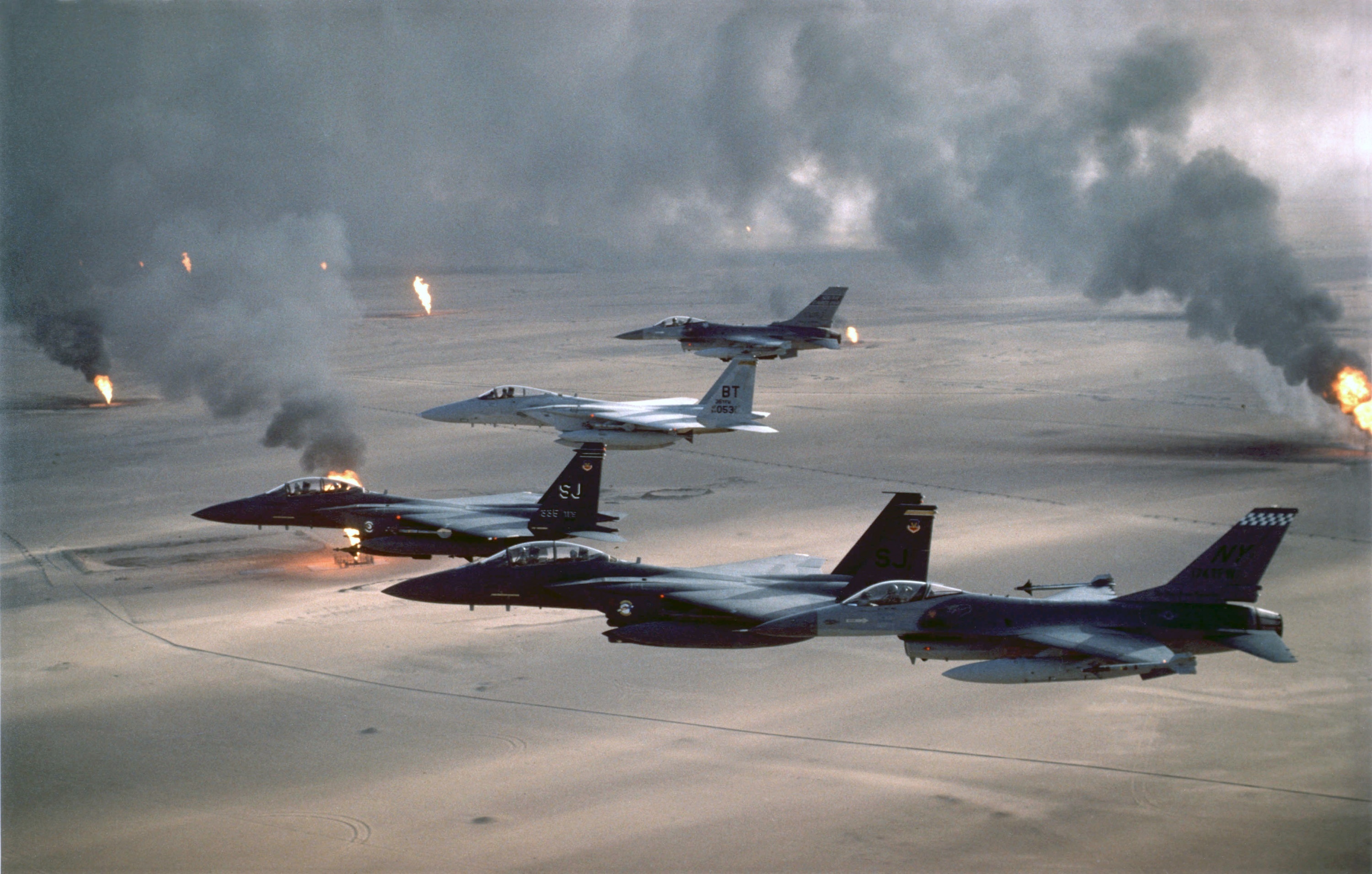
© Everett Collection via Shutterstock
The principle of distinction is the most fundamental. It states that civilians must never directly be attacked, while combatants can always be attacked in war [unless they are hors de combat]. Civilian objects must never be directly attacked, and military objectives, which are objects that have a military function by their nature, location, purpose or use, can be attacked. Concretely, every time a soldier releases their weapon in war, the attack must be directed against a target the attacker knows or has reasonable grounds to believe is either a military objective or a combatant/fighter. It is never permissible to direct an attack against a person that is a civilian or against a civilian object.
Limiting civilian harm
Even if an attack is targeted appropriately, the attacker may be able to foresee that the attack causes some damage to civilian infrastructure or harm to civilians as a side effect.

© Oleksii Synelnykov via Shutterstock
Militaries call this “collateral damage”. The law calls it “incidental civilian harm”, and it must be minimized as much as possible. This is the principle of necessity. Only incidental civilian harm that is necessary for the achievement of a military advantage, and that hence cannot be avoided, is permissible. Parties to a war are called upon to take all feasible precautions to minimize incidental civilian harm, for instance through the choice of weapon, the time or the angle of attack. Warnings must also be issued where possible so that civilians can move away from military objectives that are about to be targeted. Collateral damage that is necessary and unavoidable must furthermore be proportionate. It must not be excessive in relation to the anticipated military advantage of the attack. The attacker must weigh the military advantage against foreseeable and unavoidable civilian harm. It is possible for an attack to be targeted appropriately and for precautions to be taken, but still the attack is illegal because the expected incidental civilian harm is disproportionate.
Morality vs law
There are divergences between what international law prescribes and what a moral approach to permissible killing would imply. International humanitarian law does not prohibit attacks against combatants, but a combatant can simply be someone conscripted into the armed forces of their state and compelled to fight for an unjust cause. Alternatively, a combatant might be fighting for a just cause.
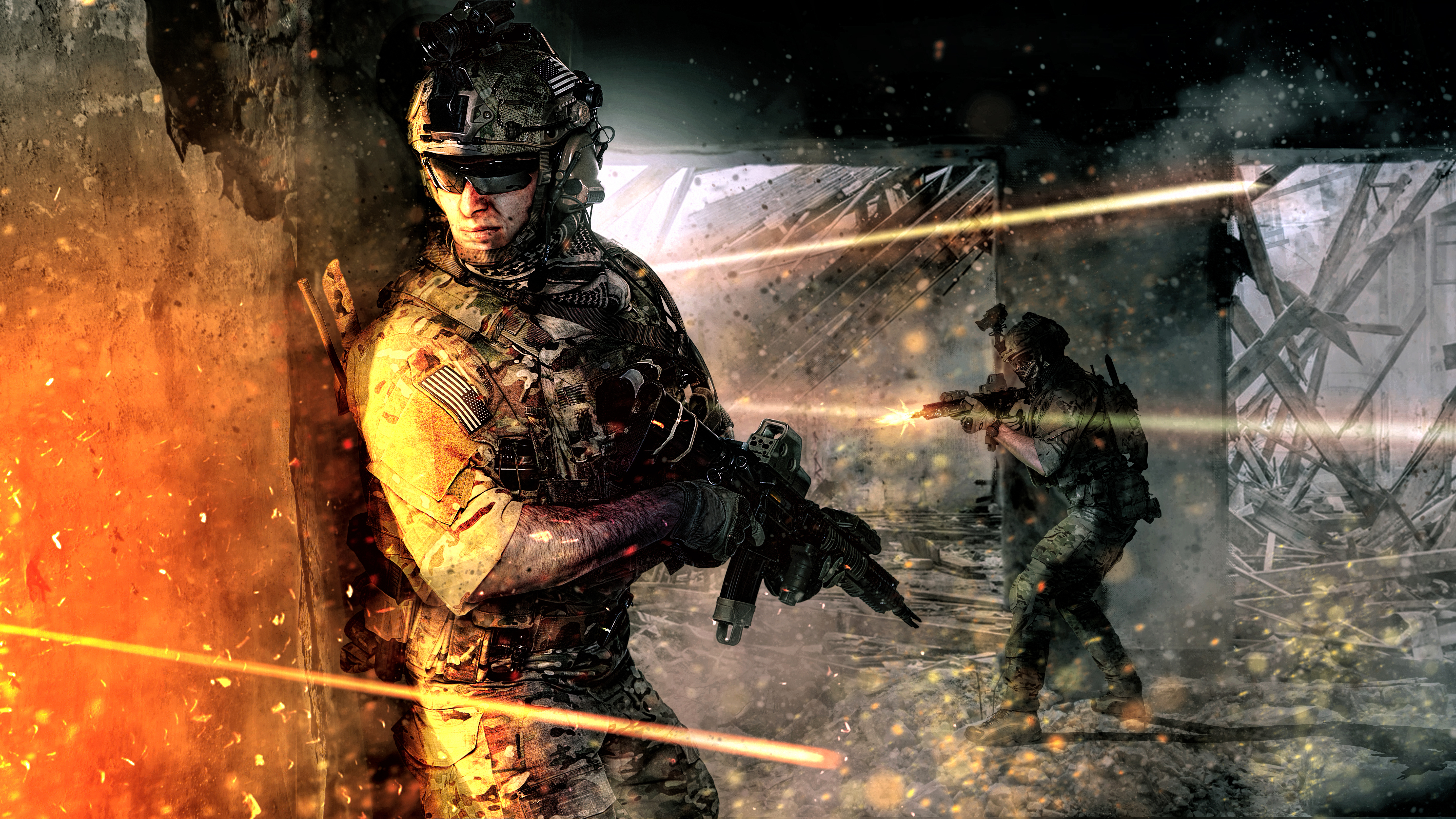
© Getmilitaryphotos via Shutterstock
From a moral perspective, someone who had no choice but to fight, or someone who fights for a just cause, is not necessarily morally liable to being harmed. Law, however, does not make these distinctions between voluntary and forced combatants or between those who fight for a just and those who fight for an unjust cause. From the perspective of law, soldiers on both sides are equally liable to harming.
Where law and morality diverge
In the war between Russia and Ukraine, Russia is conducting an illegal and immoral aggression while Ukrainian soldiers are acting in self-defense. From a moral point of view, soldiers who act in self-defense are not liable to harming, as they have done nothing wrong. However, international humanitarian law addresses Russian and Ukrainian soldiers with the exact same rules. This is a significant divergence between morality and law. The divergence exists for a moral reason: if law established one set of permissive rules for the just defender and another restrictive set for the unjust aggressor, the restrictive rules for aggressors would never be applied, and the unjust aggressor would simply use the permissive rules for defenders. For law to be complied with, it must be the same for both sides, even if this allows unjust combatants to kill just ones.
Human rights law vs humanitarian law
International Humanitarian Law is very old. It evolved specifically to regulate conduct in war. In the Geneva Conventions we have a modern articulation of the old laws of war. Still, they are not particularly morally ambitious because they must elicit compliance in the reality of war. The laws of war do not prohibit conduct that may be morally abhorrent; they do not protect soldiers fighting for a just cause, and they do not prohibit killing civilians foreseeably. Our intuitions about permissible violence are better reflected in human rights law, which regulates relations between states and citizens in peacetime. The traditional understanding was that human rights law applies in peacetime and humanitarian law applies during war. That understanding has been criticized with the view gaining traction that human rights obligations continue to apply in war, at least where discharging them is possible. The dominant understanding now is that humanitarian law primarily governs the conduct of hostilities, but where a state has effective control over individuals during war – for example, when detaining them or as an occupying power – the state must also meet its human rights obligations.
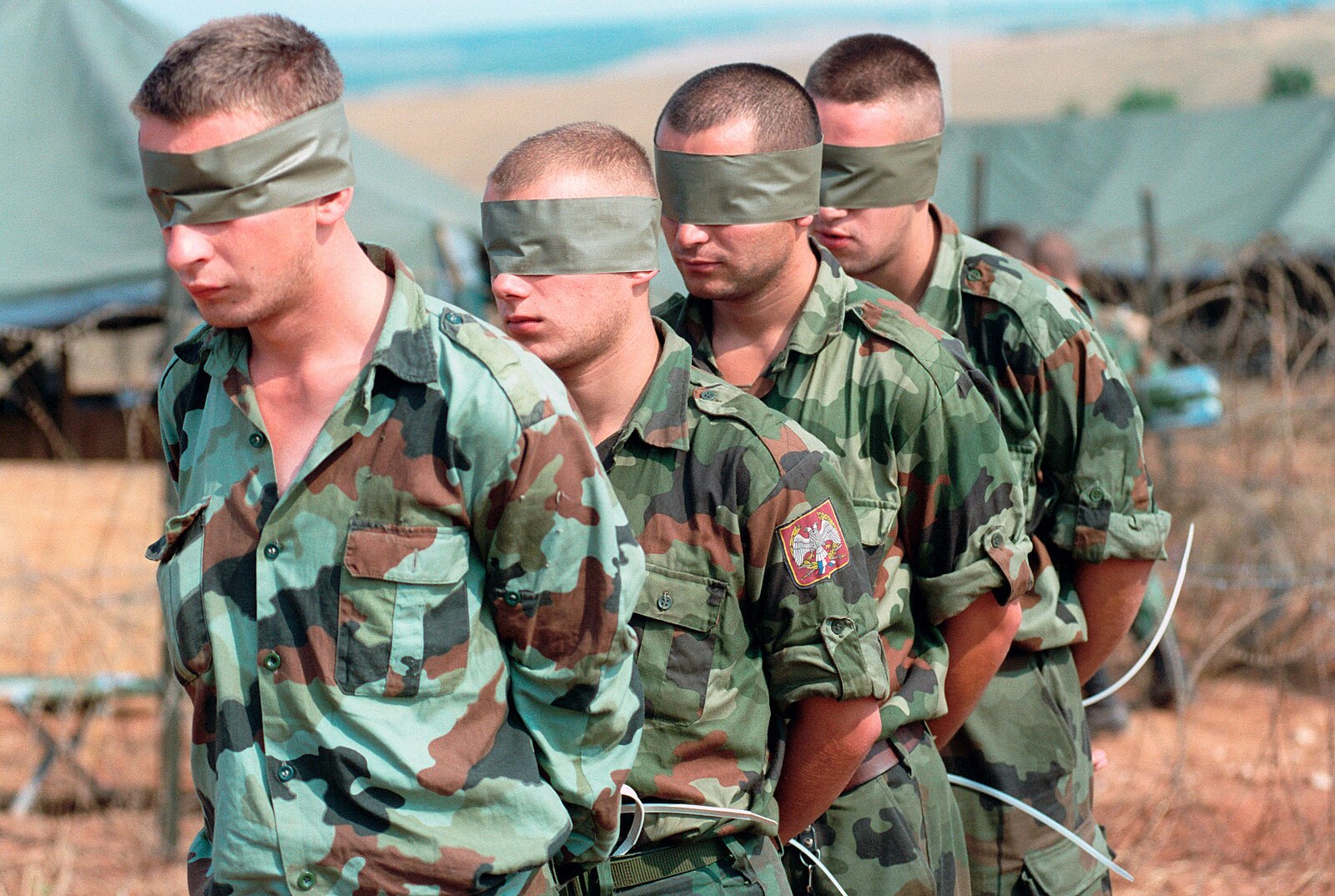
© SGT Craig J. Shell via Wikimedia
This is somewhat contested, but more states accept that human rights inhere in people who carry their rights into war, even if it is not always possible to fully protect these rights during the conduct of hostilities.
Compliance with wartime law
The fact that international law is not reliably enforced is not the primary reason for non-compliance. States comply with international law for many reasons, and fear of sanctions is only one of them. Law bestows legitimacy; it helps coordination; and it carries moral authority. The most important way to improve compliance with international law is for states to consistently demand compliance, not only from adversaries but also from allies. Enforcement is most effective vis-à-vis allies, over whom states have the most influence. The current crisis of compliance in International Humanitarian Law is not due to any particular weakness of that body of law but to a lack of political courage. States must be willing to impose consequences on allies who violate the law, even if that is politically costly.
Lack of political courage
There are several misconceptions about international law in war. The most important is that highly legalized war is somehow not a moral catastrophe. It is.
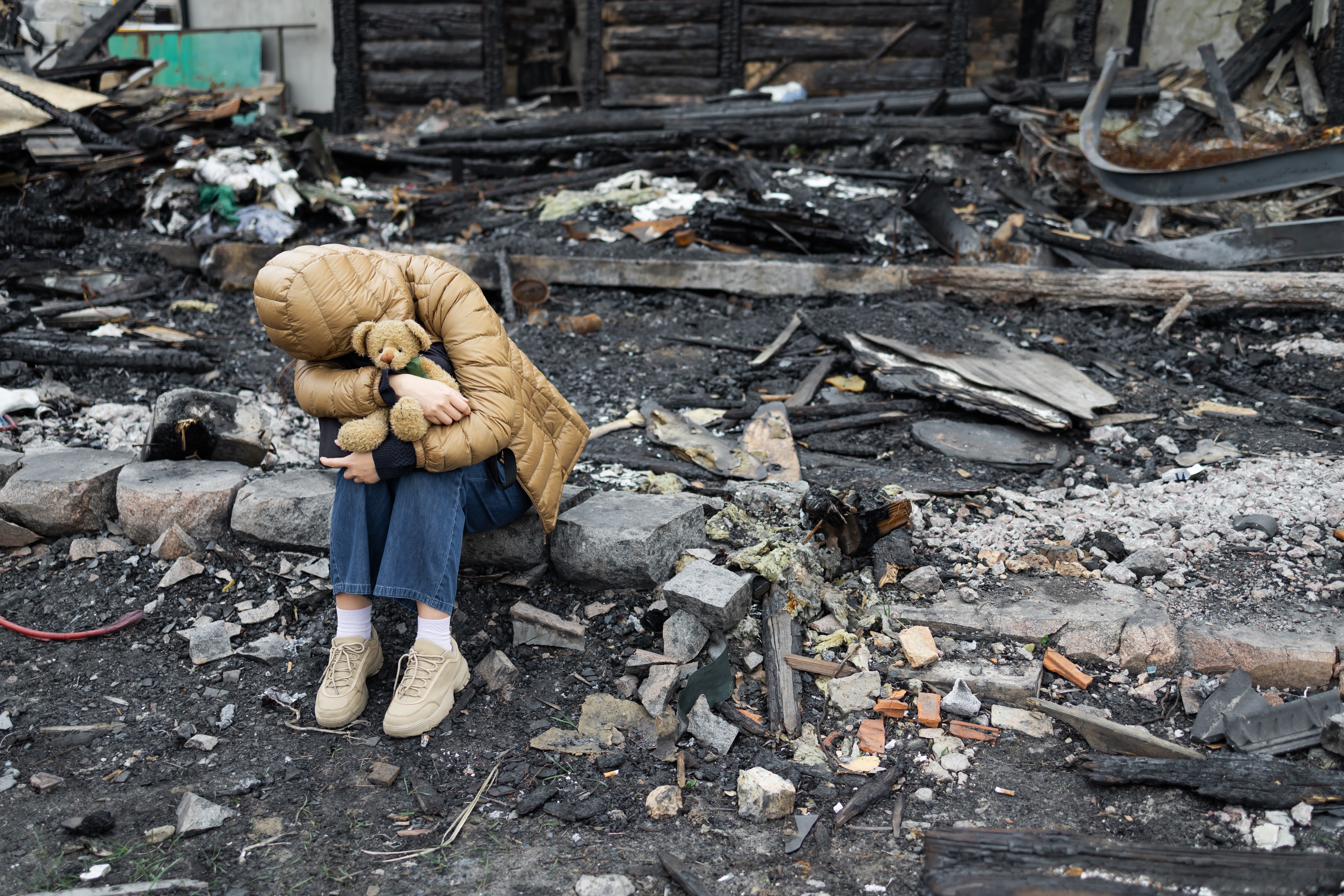
© Yanya via Shutterstock
Law is not a panacea that makes war morally acceptable, but it plays an important role in curbing violence and potentially lessening the moral evil that war is. We must insist on compliance and work hard to bring war and law into better alignment. When there is non-compliance, as in the wars in Ukraine, Gaza and Sudan, the cause is not usually the inadequacy of law but of politics, specifically a lack of courage of political leaders.
Editor’s note: This article has been transcribed from the original interview filmed with the author and edited for length and clarity. Edit date: 2025
Discover more about
international law in wartime
Dill, J. (2015). Legitimate targets? Social construction, international law and US bombing. Cambridge University Press.
Bohrer, Z., Dill, J. & Duffy, H. (2020). Law applicable to armed conflict. Cambridge University Press.
Dill, J. & Schubiger, L. I. (2021). Attitudes toward the use of force: Instrumental imperatives, moral principles and international law. American Journal of Political Science, 65(3), 612–633.
Dill, J. (2019). Distinction, necessity and proportionality: Afghan civilians’ attitudes toward wartime harm. Ethics & International Affairs, 33(3), 315–342.
Dill, J. (2019). Do attackers have a legal duty of care? Limits to the individualization of war. International Theory, 11(1), 1–25.
United Nations (1945). United Nations Charter. United Nations.
United Nations (1949). Geneva Convention relative to the protection of civilian persons in time of war. United Nations.